On Jan. 11, 2021, the Zinn Education Project hosted a Teach the Black Freedom Struggle people’s history class with Professor Jeanne Theoharis, who spoke with high school teacher and Rethinking Schools editor Jesse Hagopian about the new young adult book on Rosa Parks.
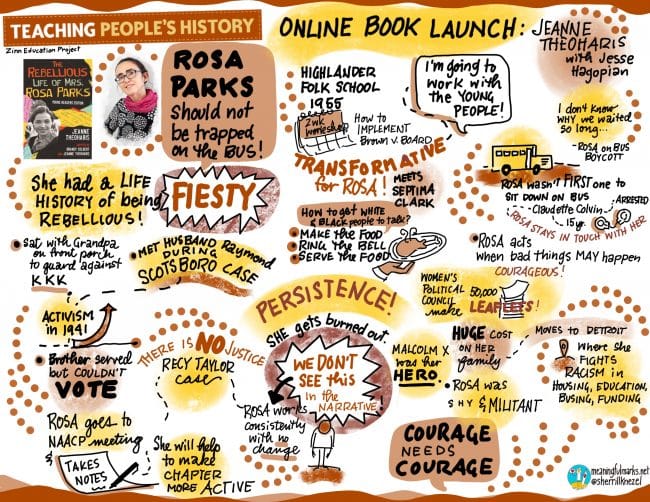
The class conversation, illustrated by Sherrill Knezel.
Hagopian and Theoharis discussed Parks’s activism prior to the Montgomery Bus Boycott, her trip to the Highlander Folk School, and the decades she dedicated to challenging racism in the North. This session was based on The Rebellious Life of Mrs. Rosa Parks: Young Readers Edition by Jeanne Theoharis and Brandy Colbert, to be released in February 2021.
Here are a few reactions from the participants:
Mrs. Parks was not a passive activist, and to frame her as such is a diminishment to the powerful person that she was. She was not passives; she was a quiet storm!!
I learned so much about Rosa Parks’ life after the bus boycott, the isolation and hardship that she faced as a result of her activism.
I think right now, young people are just totally caught off guard by what is going on in our country today. The ones I work with are probably afraid and feel as if they are targets and hated. I know in other communities the young people may feel or think they have the right to discount others, it is impossible to tell. Rosa Park’s life gives us a road map to stay in the game and do our best for all young people.
Below, find highlights of the session, a full video recording, recommended resources, and more participant feedback.
Video
Video of the full event, except the breakout sessions.
Audio
Listen to the recording of the session on these additional platforms.
Resources
Here are many of the resources recommended by the presenters and also by participants in the chatbox.
Participant Reflections
Here are some of the responses by participants from the session evaluation.
What was the most important thing (story, idea) you learned today?
I loved hearing about the mentorship of generations of activists, from Septima Clark to Rosa Parks to Claudette Colvin — these relationships are such an important part of this history that too often gets erased.
I appreciated the stories and the format (pedagogy) of this workshop. It is a very good model of how to run remote lessons.
Rosa Parks was mentored by Septima Clark!
That Rosa Parks had been doing these same kinds of actions for decades without knowing if any change would actually happen. Also, she wasn’t alone. This wouldn’t have happened had groups not been organizing for years.
Rosa Parks was discouraged and she kept going. Kids need to hear that.
I found Rosa Park’s connections to other activists, both locally in Montgomery and in her later life with Malcolm X, to be a very important part of the story. To teach her story in isolation does a disservice to our students who need to understand the values of mentorship, planning, and organization. While injustice can be recognized alone, it takes a community to fight it.
Mrs. Parks had Claudette Colvin come for sleepovers! The tenderness of intergenerational women’s friendships.
Being six years old and sitting with her grandfather to protect her family.
Rosa Parks herself was not confident that she would see change — but acted and persevered nonetheless. She was a “long-distance” activist for decades, (and so many others had acted, and organized, without seeing much or any change). This is MUCH more powerful as a teaching goal than the myth of the solitary superhuman single act of Rosa Parks.
I learned so much about Rosa Parks’ life after the bus boycott, the isolation and hardship that she faced as a result of her activism.
Rosa Parks was engaged in the struggle AFTER Montgomery, too! I didn’t know that.
I learned about the backlash that she faced as a result of the Montgomery Bus Boycott and how it affected her family (losing their jobs, being forced to relocate to Detriot, etc.).
The role of the Women’s Political Council in organizing the movement in Birmingham.
Rosa Parks’ life after the boycott in Detroit and her contribution to the Black Power Movement.
The dedication Rosa Parks gave to issues beyond the civil rights movement in the United States. She also opposed the Vietnam War, Apartheid in South Africa, and human rights abuses in Central America in the 1980s.
I loved learning about Rosa Park’s mentors and the young people she mentored — we all need support and guidance. Activism doesn’t work in a bubble.
Young people need to know that they are more than capable of being an activist and that activism encompasses more than marching in a protest. Take Rosa off the wall.
That I’ve been missing OUT by not attending these sessions! (And about the Highlander connection and Mrs. Parks being mentored by Septima Clark!)
How long Rosa was in the struggle and how she became tired and wanted to give up. She needed mentoring as a mentor and she did receive it. I knew she suffered from depression and thought of suicide due to the constant death threats, but I never thought of her being tired of the struggle or needing mentors. I mean it is totally human and needed by all, but it never crossed my mind.
It’s possible and important to act even if you don’t know what it will do, even if the end isn’t in sight. Rosa Parks was a long-distance runner.
The perseverance of Rosa and her involvement in myriad human rights issues like women’s rights, oppose police brutality and segregation, decolonization, anti-apartheid, the anti-war movement, youth involvement.
The story about Jeremiah Reeves intrigued me. I cannot recall ever hearing his story.
I did not know she and her family lost their jobs during the bus boycott. I did not know about the death threats they faced and her legacy with activism as she moved north to Detroit.
I got the fuller Rosa Parks story from this class rather than a snapshot of what the textbook taught me. I learned Rosa Parked was a committed activist for the fight for social justice and that there was a legacy of black women who inspired each other, lifted each other up, and led the fight for civil rights.
Rosa Parks had mentors — and how important that is even to someone as remarkable as Rosa Parks. And I also loved hearing again about the role of the women, and especially Joann Robinson and that whole group that was ready to go with the bus boycott.
“It’s a long-distance run”: not a new idea but an important reminder that change comes over time, and one should not be disheartened by the lack of huge success in the short term.
What will you do with what you learned?
Using all of these resources, I hope to teach a more in-depth and nuanced unit on Rosa Parks and her role in the Civil Rights Movement.
I will talk about Parks’s later life in Detroit, her admiration for Malcolm X, and her work with Black Power activists. That is something we don’t typically talk about in my class.
I’m teaching a 60s social justice movement class and it will be deepened by some of these insights and my knowledge of her connections with other activists.
I want to bring parts of this book, Parks’ story to other books we’re reading, including Coates’ Between the World and Me, so my class can discuss the deliberate ways that her story was hidden and changed, and the result of such censorship.
I’m always expanding my people and power unit in U.S. history, I also include more and more of this story in civics. I’m about to start geography and am thinking about how to add this to that course.
I am going to plan the mixer for the 4th-grade class I’m taking over for the rest of the year. I can’t wait.
As a human rights education advocate, I will share the book and materials with colleagues and members of our organizations, as a grandmother, I will buy the young adult version for my granddaughter, who would like to know about quiet women who used their voice when it was needed.
Incorporate into our Civil Rights Project in creating an Organizing Booklet for 11h grade.
Use it to frame discussion with my own children in our anti-racist curriculum supplementing their public school education, and also with my college students in public health, who come to the field because they see the health outcomes of inequality.
Teach about perseverance, teach about the importance of many little deeds.
I am very excited about teaching Rosa Parks as an example of the myths and misconceptions about the civil rights movement and struggle in general, in addition to a fuller version of the freedom fighter: the shy militant Black woman who questioned and was hopeless at times and persevered, nonetheless.
I am actually teaching this tomorrow as we move into an inquiry and throughline of white rage. Rosa Parks and the events in Montgomery are a great springboard to the principles of non-violence and the SNCC Sit-In movement that later unfolds.
Can’t wait to read the book to use this in my classroom — definitely want to do the mixer but want to see what else the book inspires.
I teach 4th grade. A big idea in my classroom is that “The past is what happened, but history is how we tell about it.” I think we could discuss why the story ‘that traps Rosa Parks on the bus’ is the one that gets told.
Teach students to see themselves as potential changemakers rather than learn about reified heroes. It’s so important that they really think about that idea that Rosa Parks didn’t know if what she did would effectively spark change, yet she did it anyway… and others stepped up to join the charge.
I will never teach about Parks the same. I will add more dimensions to widen her story to also include others like Viola White, Claudette Colvin, Fannie Lou Hammer, Malcolm X, her husband, and other organizations of the period.
What did you think of the format?
I loved that the chat allowed us to share resources and ideas and get answers to questions. I appreciated the small breakout room so that everyone had ample time to speak.
Love the large group, small group, large group. I do wish we had more time in the Breakout rooms because we were having a great conversation!
The format — especially with the emphasis on equity in politics and pedagogy — is superb. It’s a model for how I like to run video calls and teaching sessions.
It was a perfect amount of time for a session after a long day of teaching!
Prof. Theoharis’s stories were wonderful and the breakout room was equally inspiring because of the skilled facilitator (Room 12)!!
The solidarity of the participants was warmly received, clear and apparent, and REFRESHING!
I was skeptical of the format but am appreciative of the enormous effort it took to organize this. And I’m a convert.
I will be applying some of the unstructured structure to my own pedagogy. Specifically: The introduction non-lecture (it seemed like a reflection guided by some questions) & The breakout rooms (specifically the detailed instructions given beforehand and the reminder to ensure everyone else had contributed before speaking again).
Loved getting into breakout rooms and meeting people from around the country. I was able to take notes on a word doc through the lecture portion and then save the chat to add to the word doc for future reference. So many new avenues of research to pursue.
Seemed like a great format. Organized but also really welcoming and homey. The presenters seemed really comfortable, and it was easy to connect with them because of how familiar the space was. The breakout group was warm and well-run.
THANK YOU for making ASL interpretation possible. I will be sure to look for future Zinn Ed classes!
Jeanne’s talk was awesome, filled with compelling stories to illustrate just how false our myths about Rosa Parks are. Our breakout discussion was great, very good questions.
Loved everything. Including, somewhat unexpectedly, the breakout rooms — maybe assure people they are life-giving & not a typical breakout room and Zoom experience (since some folks left prior to that point). Often we’re exhausted at end of the day & people can feel shy to share more, but it was fabulous to connect with others in an ease-filled, enriching way (no one was “on the spot”, it was all in such a good flow — thanks to Turquoise Lejeune & I’m sure many others)
Great format — it always goes so fast. Would love to see more collaboration opportunities with social justice colleagues to talk about curriculum and what’s working or not in a remote environment.
Everything was great. I was nervous to speak but the facilitator was very welcoming.
The format works. I use a similar format in my [online] methods classes. No one can take more than about 45 minutes in a large group online. By using the breakout rooms, you could have a very large # of people without a problem. Overall the *atmosphere* of the entire session was wonderful. That you could “pull it off” after the week we just had is amazing!
Additional Comments
This was a wonderful session. Jesse did a fabulous job of facilitating. The content was so meaningful Jeanne. I read the adult book and I am excited to read the children’s version and share it with my own children and students.
Jeanne understands the power of story-telling to reach folks and convey to them this critical history.
Jeanne is a very informative and big-picture thinker and presenter!
There is so much I have yet to learn about the Civil Rights Movement.
Thank you SO much for hosting these. Incredibly valuable, both personally and professionally.
This wonderful event gave me the energy and community I needed this week.
This was really great. I signed up for it at the last minute earlier today and I am so glad I did.
This classroom is my extended family!
After the events at the capitol last week, it was great to be in this safe and proactive space.
Amazingly, I got my copy of Jeanne’s book Ta-Day! I wish we’d had her book when we were doing Eyes on the Prize. How much richer the bus boycott story would have been! But we have it now, so I’m grateful.
Glad I did not forget about this webinar, as I often do, I am looking forward to the book and am currently looking over the teaching resources.
I love all of these sessions — but I have to say that hearing Jeanne Theoharis again was about as excellent as it gets. She brings so many different pieces to this work — and has so much to share.
Presenters
Jeanne Theoharis is a distinguished professor at Brooklyn College. She is the author or co-author of nine books and numerous articles on the Civil Rights and Black Power movements and the politics of race and education. Her books include the award-winning titles The Rebellious Life of Mrs. Rosa Parks and A More Beautiful and Terrible History: The Uses and Misuses of Civil Rights History.
Jesse Hagopian teaches Ethnic Studies and is the co-adviser to the Black Student Union at Garfield High School in Seattle. He is an editor for Rethinking Schools, the co-editor of Teaching for Black Lives, and editor of More Than a Score: The New Uprising Against High-Stakes Testing.

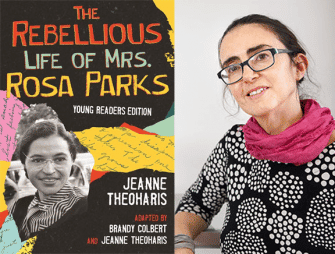
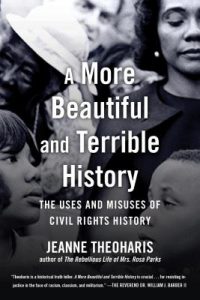
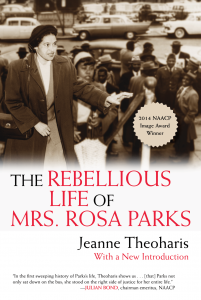
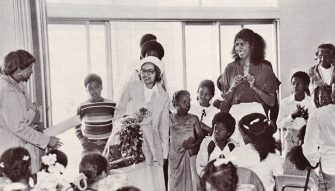
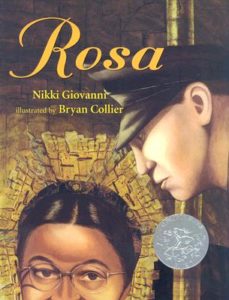
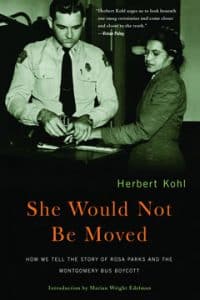
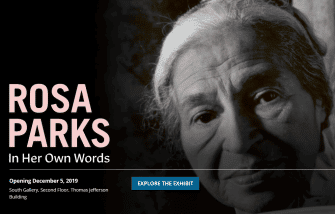
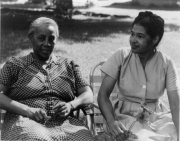
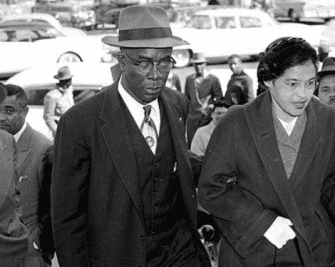
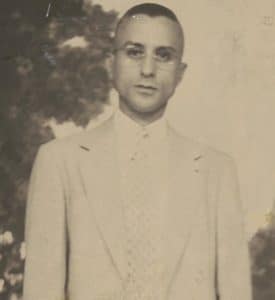
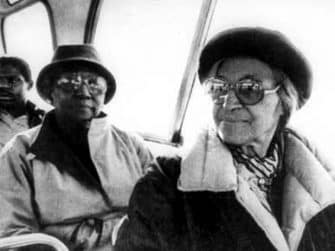
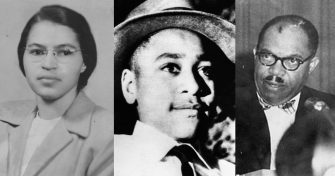
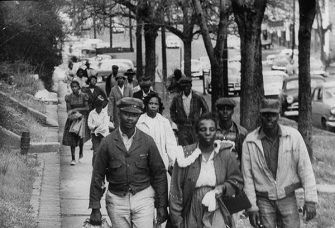
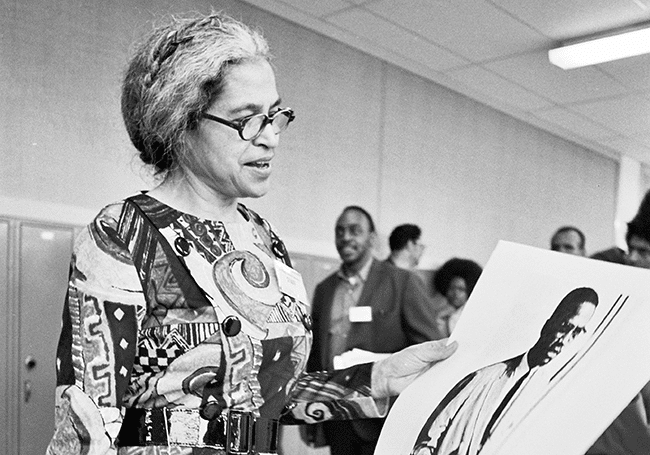

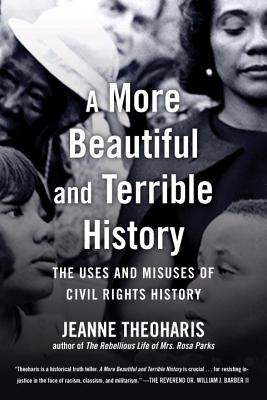
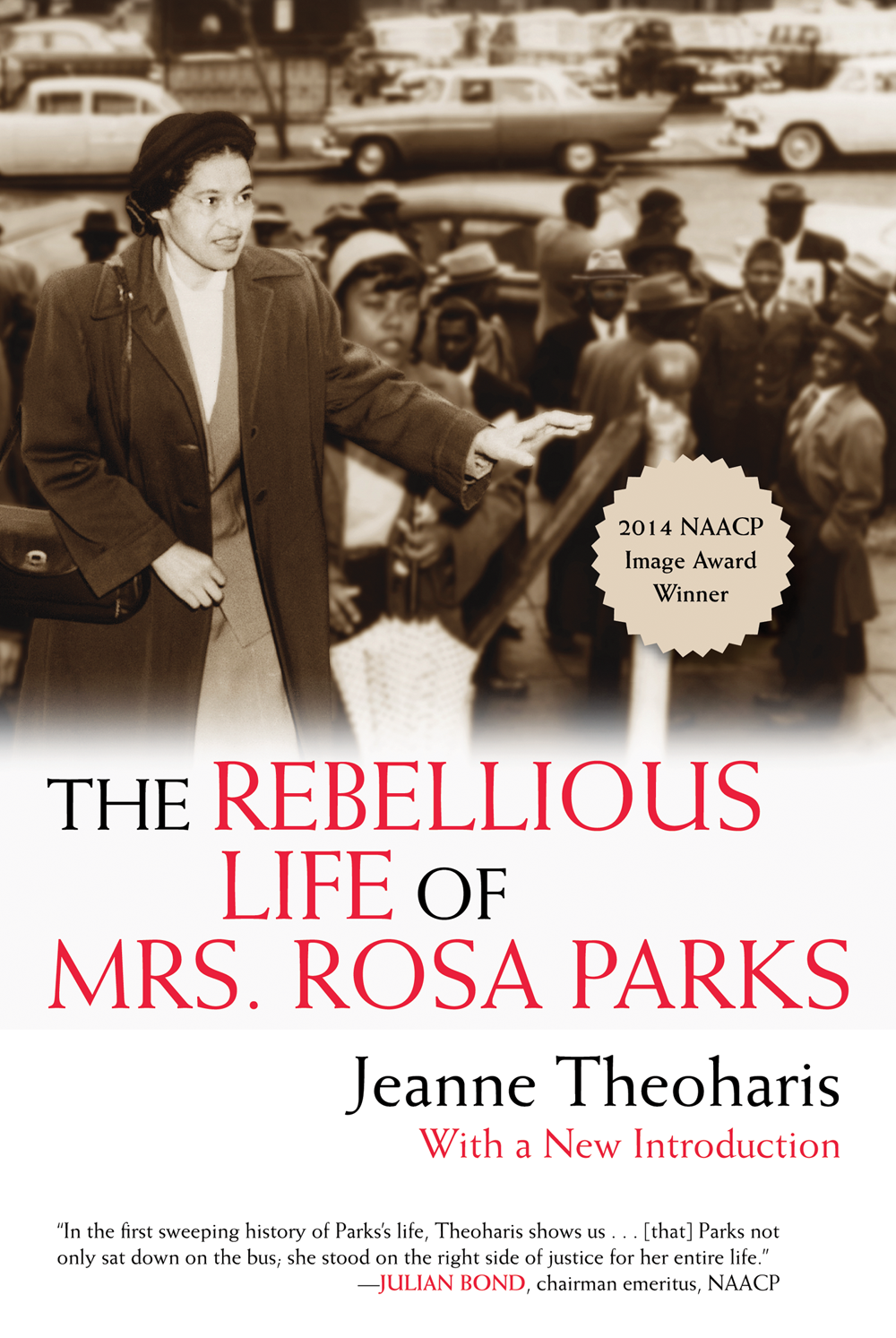
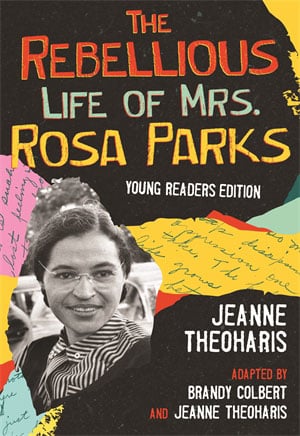
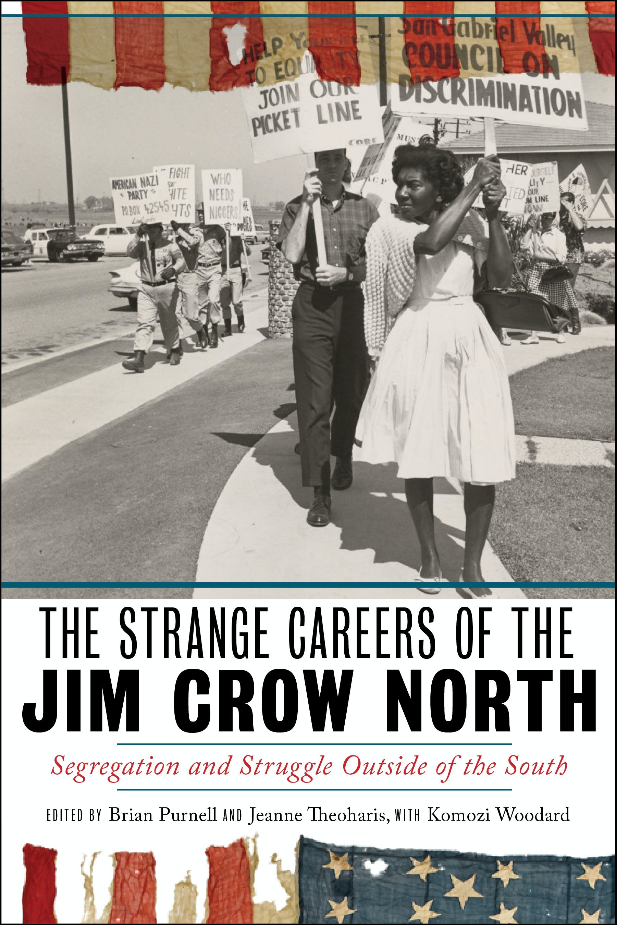

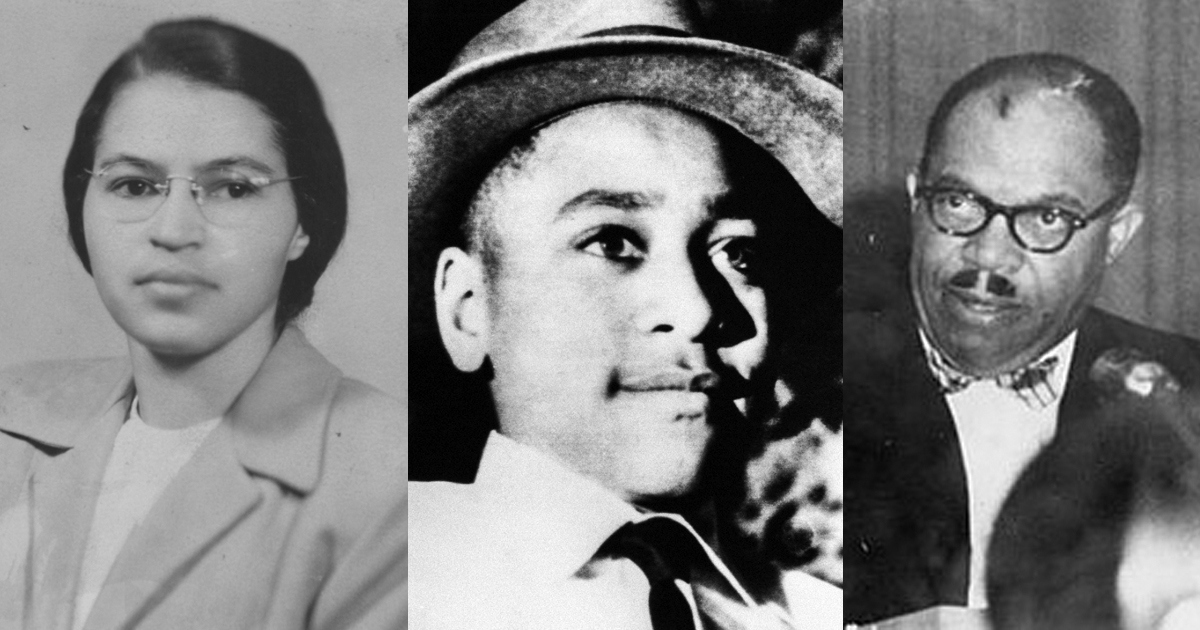
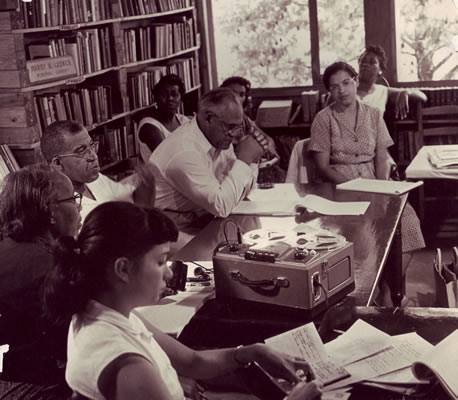
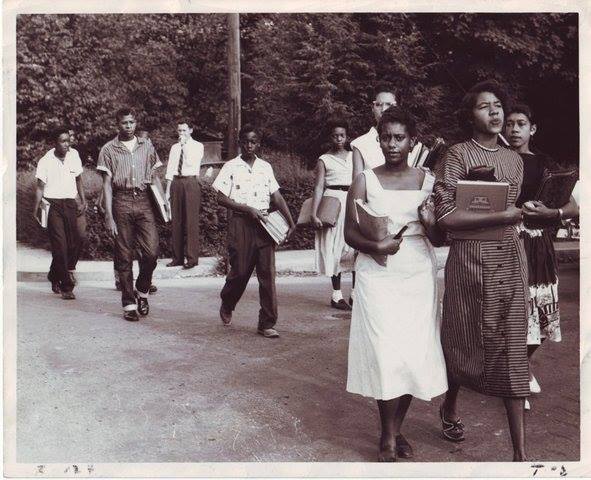
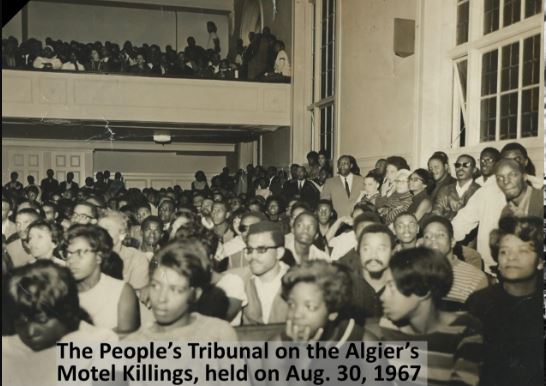





Twitter
Google plus
LinkedIn